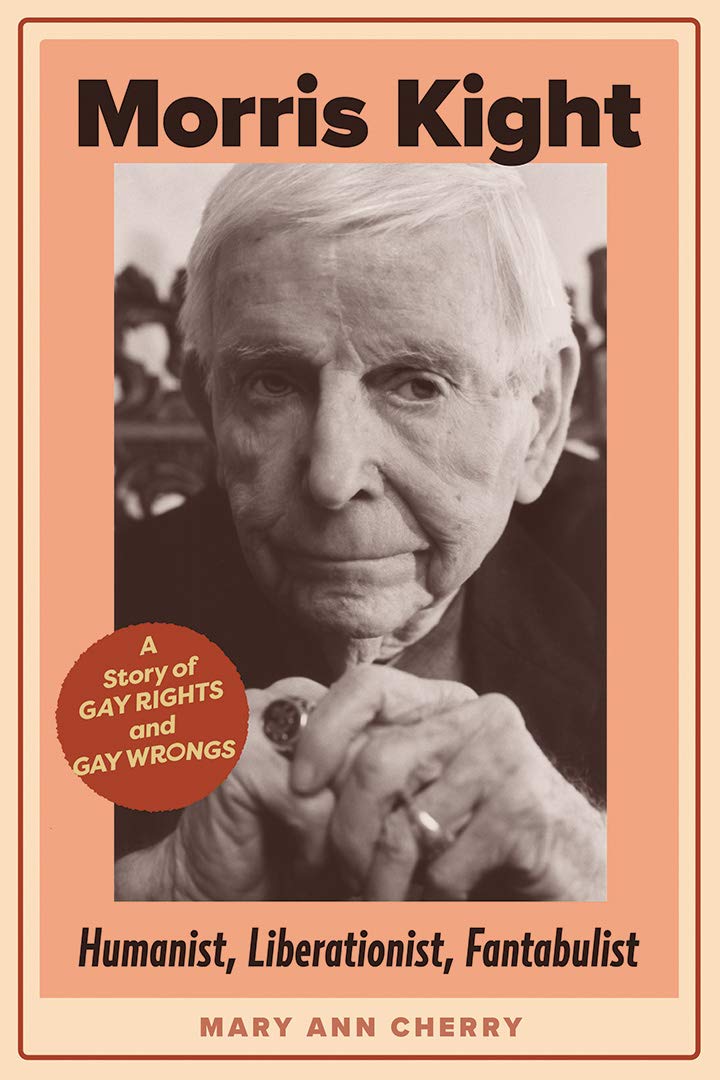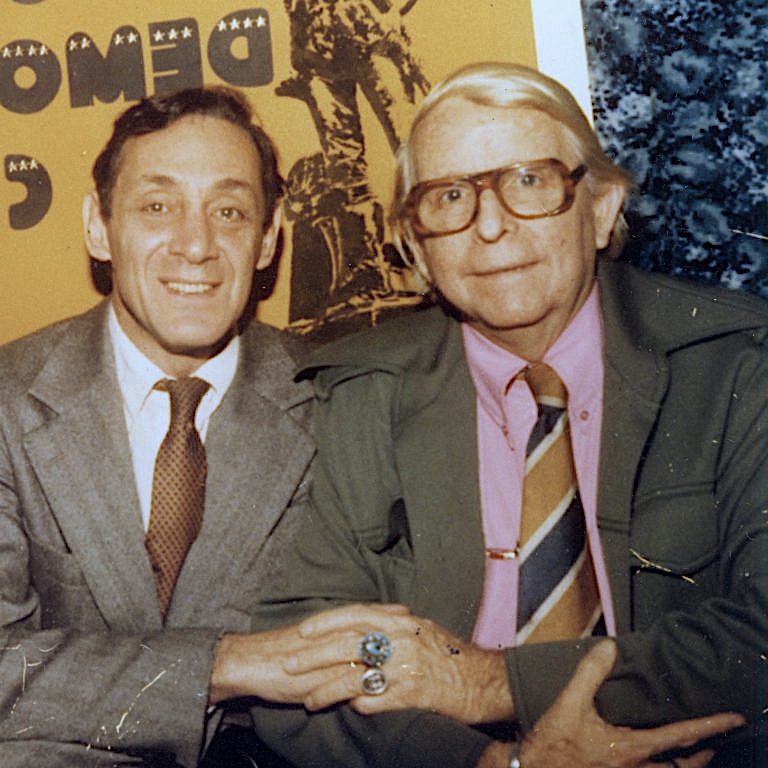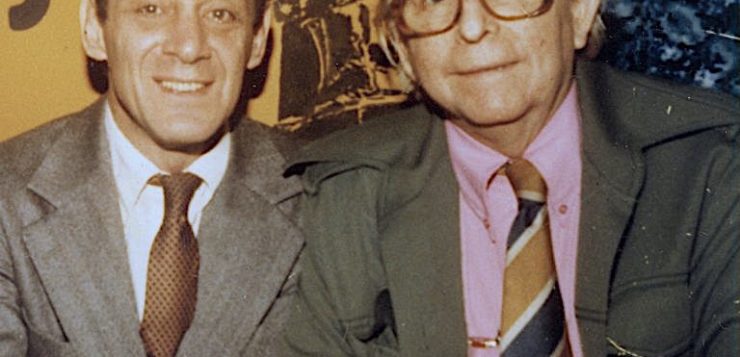 MORRIS KIGHT
MORRIS KIGHT
Humanist, Liberationist, Fantabulist
by Mary Ann Cherry
Process Media. 405 pages, $22.95.
I HAVE BEEN a longtime activist in the women’s movement and in LGBT rights on the East Coast, but I must confess that prior to reading this book I had no idea of the range and extent of Morris Kight’s contributions to LGBT rights in Los Angeles, as well as to the antiwar movement and to peace activism in general. The work of gay and lesbian pioneers has been well documented for New York City and for San Francisco. However, the liberation struggles in Los Angeles and Southern California have received far less attention.
Mary Ann Cherry’s biography of Morris Kight is designed to fill in some of the historical gaps and to document the work of LGBT activists who were at the forefront of gender and sexual liberation movements in L.A., in which Kight was a major mover and shaker. Born in 1919, Kight grew up in Comanche, Texas. His mother ran boarding houses that were essentially brothels. Kight’s earliest activist efforts involved helping the women working for his mother to get much-needed medical attention. He knew he was gay from an early age, but like many people of the pre-Stonewall generation, he married a woman and fathered children (two of them). Eventually, he needed to break out of the closet, so he left his wife and daughters and moved to L.A. in the 1950’s.

Courtesy ONE Archives at the USC Libraries.
Once there, he became active in an underground network that provided “safe houses” for gay people. This network provided the names of doctors who would work with gays and of gay-friendly lawyers who could provide legal advice at a time when same-sex sexual activities were a crime. Kight’s involvement with LGBT rights expanded over the decades. He was a consummate organizer, and he managed to foster important relationships between other activist groups, politicians, and anyone else who could advance the cause of social justice. He led protests against the American Psychiatric Association’s listing of homosexuality as a mental illness in the psychiatric bible, the Diagnostic and Statistical Manual. He regarded the “disease model” of sexuality as a major impediment to LGBT individuals accepting themselves for who they were.
Indeed self-acceptance was the route to personal freedom that Kight consistently advocated. In addition to his LGBT activism, he was a pacifist who followed the teachings of Gandhi. He took a vow of poverty and lived on very little money. He organized against the Vietnam War and founded the Dow Action Committee in 1967 to protest the manufacture of Agent Orange by Dow Chemical during the war. At the end of this biography, Cherry provides what she terms “Highlights of Morris Kight’s Accomplishments,” and the list is quite long. These include: 1969 Founder of Gay Liberation Front Los Angeles; 1970 Principal Founder of Christopher Street West; 1971 Principal Founder of Gay Community Services Center/Los Angeles; and so on.
Morris Kight lived a life dedicated to the biblical entreaty “Justice, justice shall you pursue.” His devotion to the value of every individual is inspiring, especially in times such as ours. Mary Ann Cherry has produced an account of a pioneers of LGBT liberation whose achievements deserve to be acknowledged and remembered.
____________________________________________________
Irene Javors is a psychotherapist based in New Yorik City.






